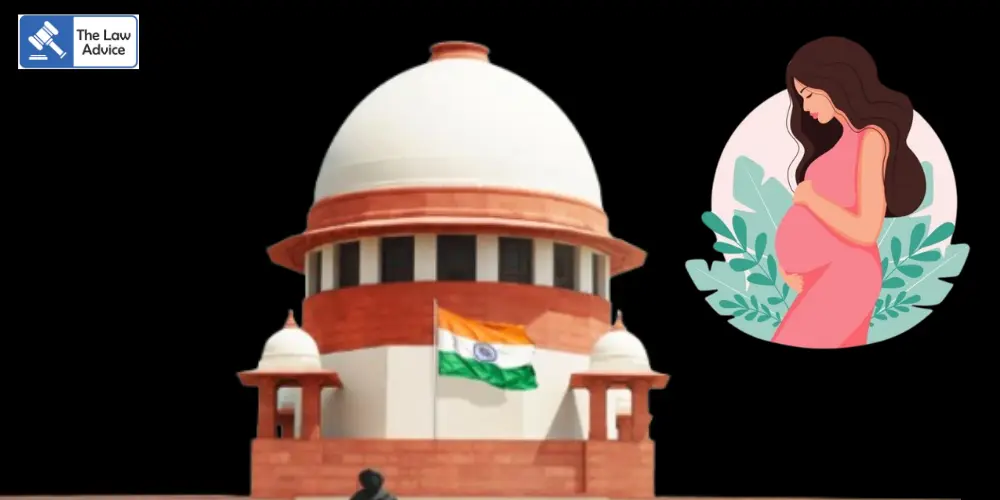In a significant ruling on reproductive rights, the Supreme Court of India on Thursday held that couples who had initiated the surrogacy process before the Surrogacy (Regulation) Act, 2021 came into force can continue with the procedure, even if they now exceed the statutory age limits prescribed under the new law.
As per Section 4(iii)(c)(I) of the Act, the woman’s age must be between 23 and 50 years, and the man’s between 26 and 55 years. However, the bench of Justice BV Nagarathna and Justice KV Viswanathan ruled that this restriction cannot be applied retrospectively to couples who had already frozen their embryos under the earlier legal framework, when no such age limit existed.
The Court reasoned that such couples’ right to surrogacy and parenthood had already crystallised once their gametes were extracted and embryos frozen steps that, under the earlier law, marked a substantial commencement of the surrogacy process. The next step — embryo implantation in the surrogate was merely procedural, the Court observed.
The bench was deciding three connected petitions where couples sought eligibility certificates under the Surrogacy (Regulation) Act, 2021, after having frozen embryos prior to the law’s commencement on January 25, 2022.
Earlier, on July 29, the Court had reserved judgment on whether such couples could proceed with surrogacy despite crossing the upper age limit prescribed by the Act.
Justice Nagarathna noted that the 2021 law was silent about couples who had already begun the surrogacy process before its enforcement. She emphasized that the case was limited to such couples and did not extend to those who initiated the process afterward.
She further questioned the logic behind age limits for intending parents in surrogacy, observing that while the surrogate mother’s age could be reasonably restricted for health reasons, the same rationale does not automatically extend to intending parents, who are not physically carrying the pregnancy.
Additional Solicitor General Aishwarya Bhati, representing the Union Government, opposed the pleas, asserting that:
• The age restriction is based on biological and medical considerations, including the quality of gametes.
• The welfare of the child was also a guiding factor, as older parents might be less capable of long-term caregiving.
She cited cases where intending parents were well above 55–60 years, emphasizing that the State must consider the child’s best interests.
Bhati also invoked Section 53 of the Act, arguing that a couple’s legal rights under surrogacy arise only when the embryo is implanted in the surrogate’s uterus, not merely when embryos are frozen.
Justice Nagarathna countered that increasing life expectancy in India and medical advances challenge the outdated assumption that older parents cannot raise children. She also noted that there is no age limit for natural conception or adoption, underscoring that the Act’s true intent was to prevent commercial exploitation, not to deny genuine couples parenthood.
The bench further observed that adoptive parents face no statutory age ceiling under Indian law — pointing to the Hindu Adoptions and Maintenance Act and questioned the inconsistency in disallowing older couples from having a biological child through legitimate surrogacy.
These petitions are part of a broader batch of challenges questioning the constitutional validity of several provisions of the Surrogacy (Regulation) Act, 2021 and the Assisted Reproductive Technology (Regulation) Act, 2021.
Key contested provisions include:
• Age and marital status restrictions on intending parents.
• Exclusion of single women (other than widows or divorcees aged 35–45).
• Prohibition on surrogacy for couples who already have a surviving child.
• Ban on commercial surrogacy.
The main petition in the batch was filed by Dr. Arun Muthuvel, a Chennai-based infertility specialist, challenging several of these restrictions as arbitrary and disproportionate.
Case Details:
• Case Title: Arun Muthuvel v. Union of India & Connected Cases
• Case No.: W.P.(C) No. 756/2022 and connected matters
• Bench: Justice BV Nagarathna and Justice KV Viswanathan
• Judgment Date: October 9, 2025
This decision represents a progressive affirmation of reproductive autonomy and the right to parenthood, emphasizing that legal reforms cannot retroactively curtail legitimate expectations formed under earlier laws.
By holding that frozen embryos signify a crystallized reproductive intent, the Supreme Court has recognized that technology-assisted parenthood deserves the same constitutional respect as natural conception — marking a notable step toward protecting personal liberty and dignity in reproductive choices.
